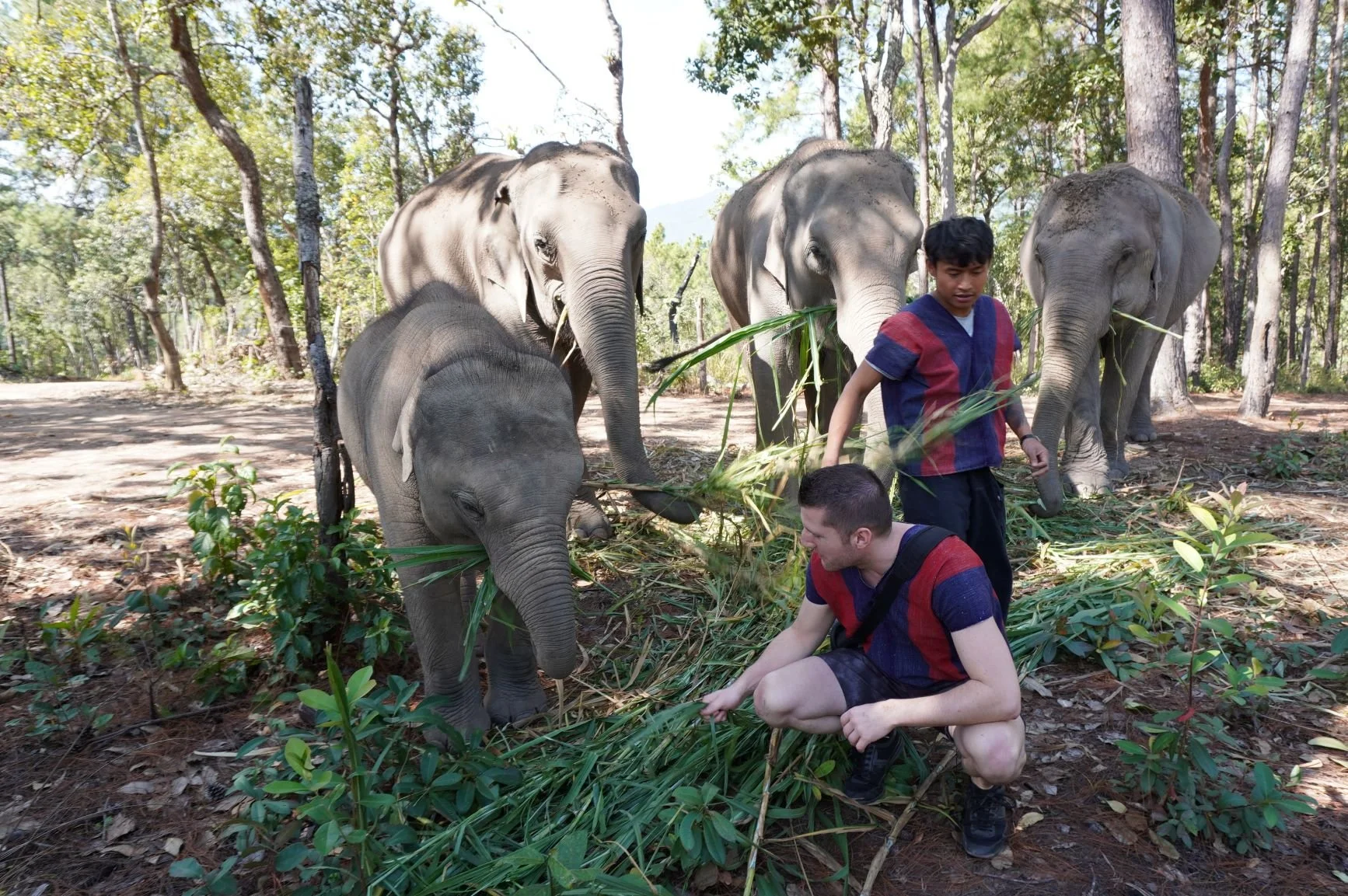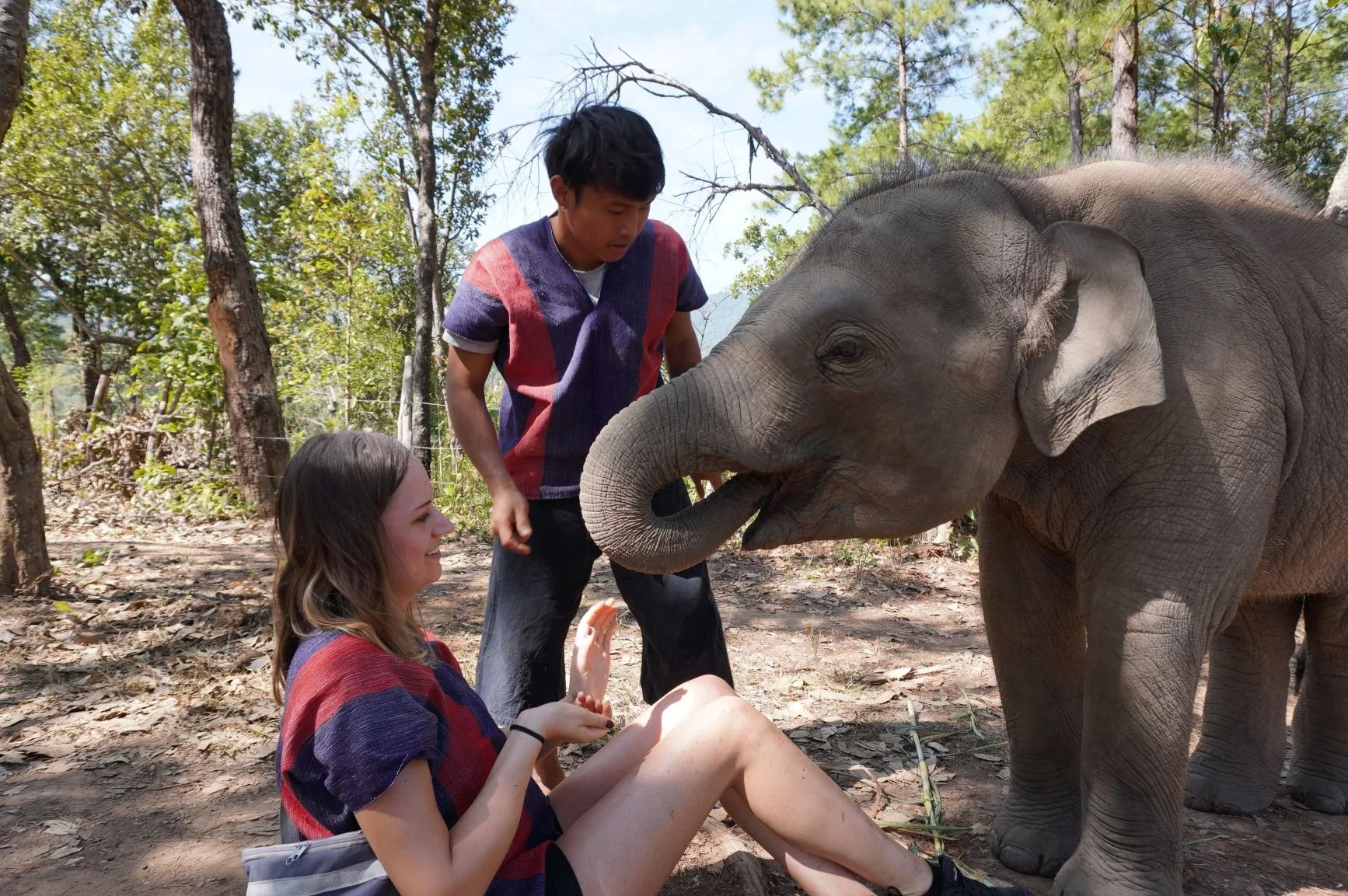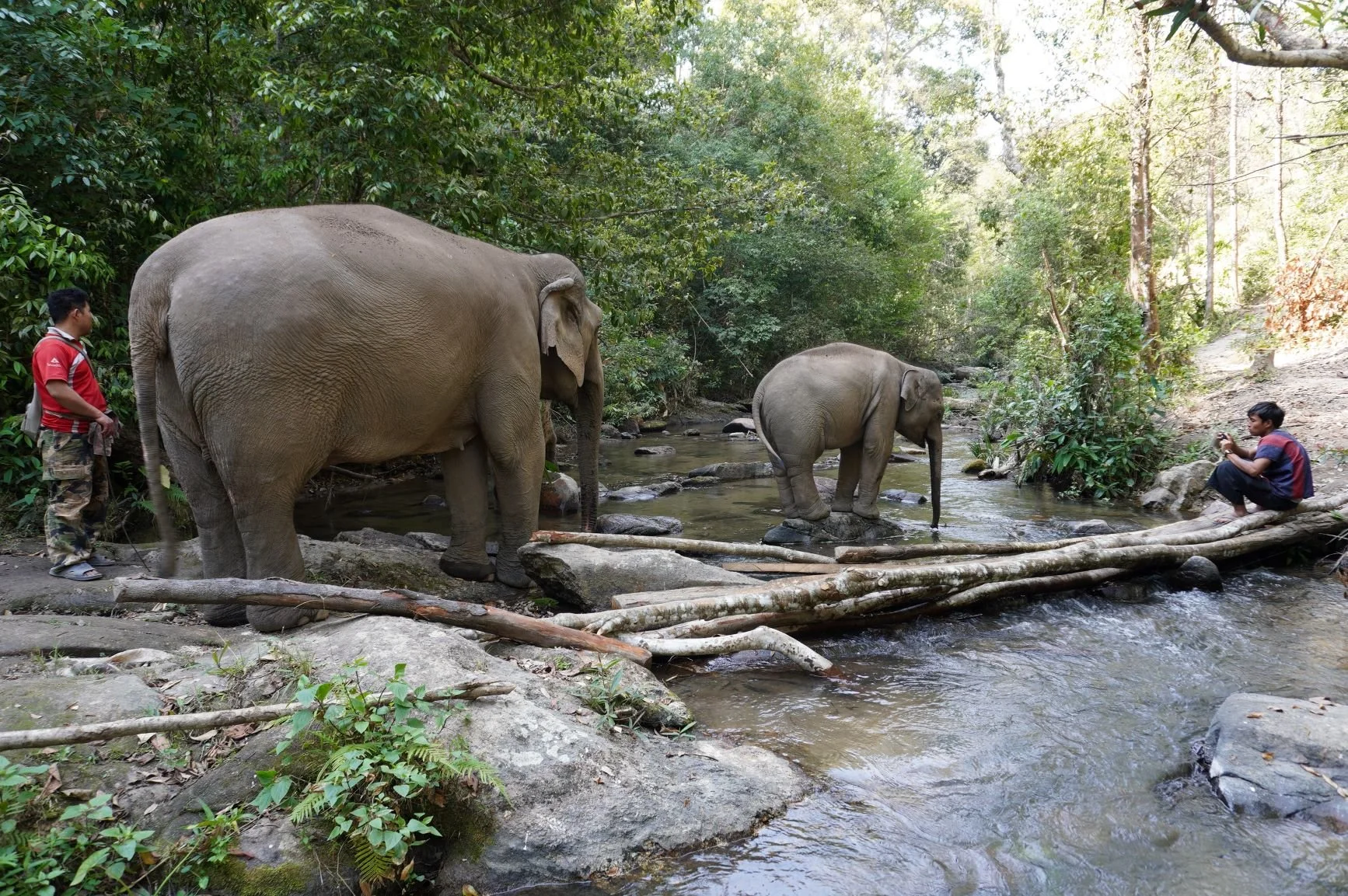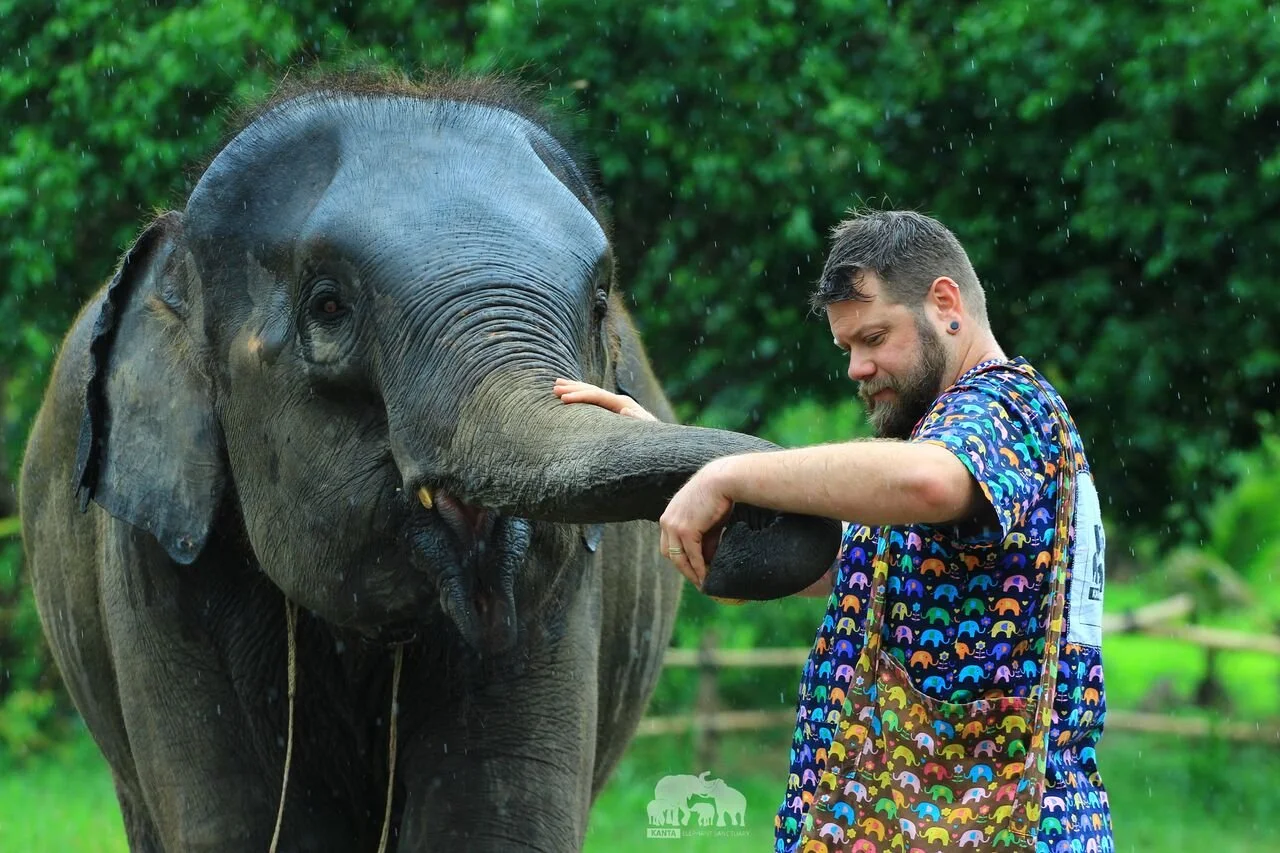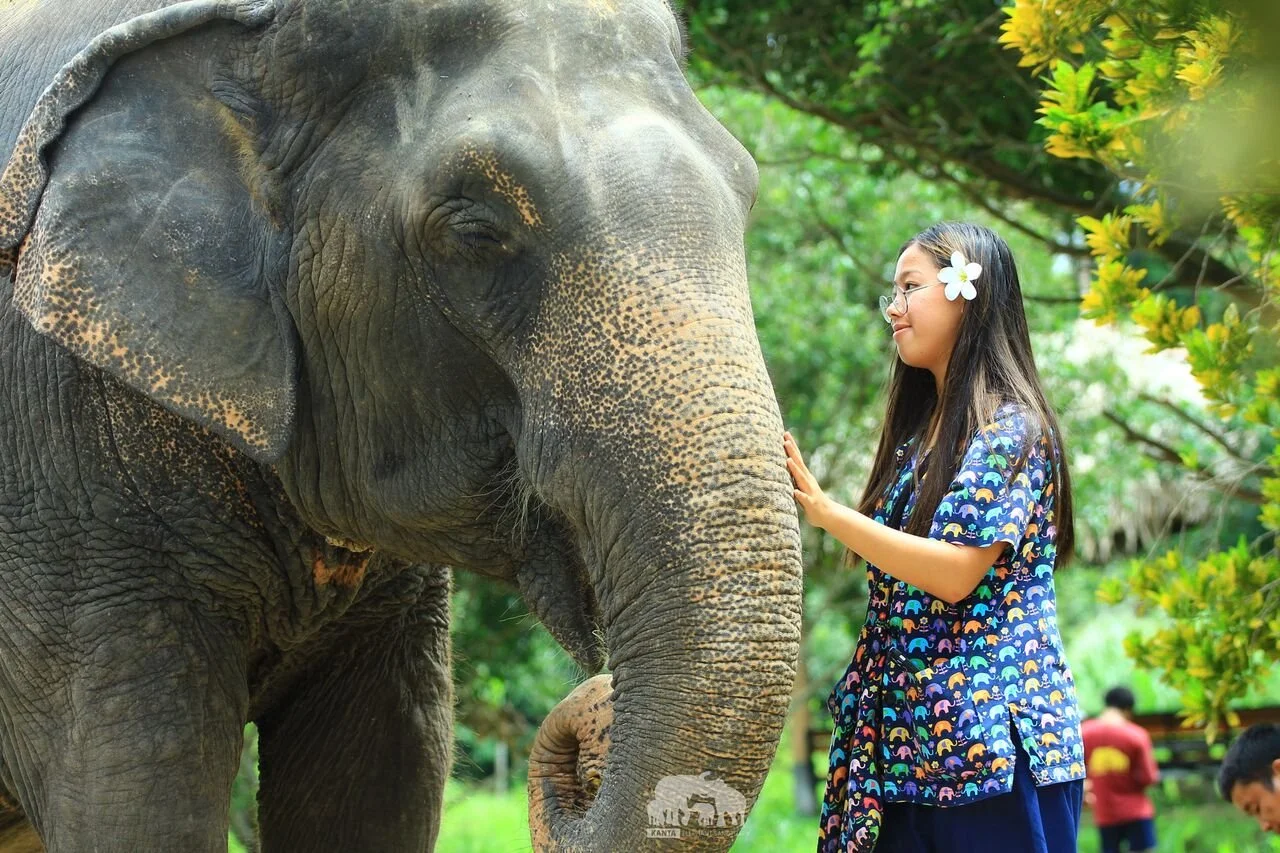Elephants & The Karen Tribe: Understanding Ethical Tourism in Chiang Mai
Written by Pim Meijboom, Co-Founder of PM Tours. One of the most common questions I get is: "Is it cruel to visit an elephant sanctuary?"
The answer is complex. In Thailand, there is a distinct difference between "Wild Elephants" (Chang Pa) and "Village Elephants" (Chang Ban). For the Karen Hill Tribes, elephants have been family members for centuries. They live under the same roof, eat the same crops, and share a bond that is hard for outsiders to understand.
At PM Tours, we only work with sanctuaries that respect this ancient bond while adhering to modern ethical standards: No riding, no performing, and absolute freedom to roam.
If you ask travelers why they have visited Chiang Mai, you will likely hear a wide range of answers. Some tourists find themselves in the area before embarking on hikes and jungle treks, while others are more interested in discovering the ancient city's rich history and breathtaking temples. One attraction that Chiang Mai is particularly famous for is its elephants.
Chiang Mai's relationship with elephants is truly unique. The mountainous jungle areas, which were home to these majestic creatures long before humans settled there, have fostered a special bond between the Karen Hill Tribe and domesticated elephants. This unique history, a cornerstone of the region's culture, continues to draw tourists worldwide who are captivated by the magic of these majestic creatures up close.
Ethical Elephant Tourism: Quick Rules
Riding: Never. (PM Tours has a strict No-Riding policy).
Hooks: No. Ethical sanctuaries use positive reinforcement (food), not pain.
Chains: Sometimes necessary. (Explained below: Long tethering at night prevents elephants from wandering into farms/traffic).
Bathing: Observation is best. Many sanctuaries now move away from "mud spas" to reduce stress on the animals.
The Karen Connection: Elephants are treated as family members, not assets, in traditional Karen culture.
The History of Domesticated Elephants in Chiang Mai
The practice of domesticating elephants in Thailand began over 4,000 years ago. Historically, elephants are integral to Thai culture, religion, and daily life. They are symbols of power, wisdom, and good fortune. In ancient times, elephants were indispensable in warfare, construction, and transportation, playing a crucial role in shaping the region's history.
Elephants were pivotal in ancient Thai societies, particularly in the region that would later become Chiang Mai. Due to their strength, intelligence, and ability to traverse rugged terrain, such as dense forests and mountainous landscapes, elephants were initially utilized primarily for warfare and transportation.
The tradition of domesticating elephants has deep roots in Chiang Mai. The city was once the capital of the Lanna Kingdom, where elephants were used in royal ceremonies and in agricultural and logging industries. The rugged terrain of northern Thailand made elephants the perfect work companions due to their strength and ability to navigate dense forests.
The Karen Tribe and Their Elephants
The Karen tribe, one of the largest ethnic minority groups in Thailand, has a particularly close-knit relationship with elephants. For centuries, the Karen people have lived in harmony with these gentle giants, developing a profound understanding and respect for them. The tribe's elephant handlers, or mahouts, are highly skilled in caring for and training elephants, passing down their knowledge through generations.
Traditionally, elephants are considered part of the Karen family and treated with the same care and affection as human family members. This bond is deeply spiritual, with the Karen people believing that elephants bring good luck and protection. This unique connection has preserved the elephant domestication tradition and ensured these animals' well-being.
Elephant Sanctuaries in Chiang Mai
Today, elephant tourism in Chiang Mai has evolved, placing a strong emphasis on the ethical treatment and conservation of these magnificent creatures. Visitors to Chiang Mai can now engage with domesticated elephants in a way that respects their welfare and honors the cultural heritage of the Karen tribe. Here are some notable elephant sanctuaries in Chiang Mai that uphold these ethical standards, reassuring tourists who support responsible tourism.
Elephant Freedom Village
Elephant Freedom Village is a fantastic choice if you're looking for an ethical, family-run elephant sanctuary in Chiang Mai. It's run by Non, a 7th-generation elephant keeper from the Karen Hill Tribe, and his family. They look after 12 elephants of varying ages, from babies to elders, to allow the animals to have as natural a life as possible, away from the mistreatment that sadly is rife within Thailand's elephant tourism industry.
Non prides himself on not just creating a happy life for his elephants; he also aims to welcome his guests into his tribe's village, sharing their way of life with visitors. Most of the staff at the small sanctuary are members of the Karen hill tribe and live in the nearby Nong Tao village. After each tour, Non always tries to show visitors around the village. Here, they can meet Karen villagers and support their livelihoods by shopping at the local market.
Elephant Freedom Village runs tours that vary in length, from half-day experiences to overnight stays where guests spend the night in a local homestay. Whichever tour you opt for, you can be sure that the experience will teach you a lot about elephants and the Karen way of life.
Into the Wild Elephant Camp
Into the Wild Elephant Camp is another popular destination for those looking to ethically interact with elephants. The camp is based in the northern Thai jungle, and careful work has been done to return the rescued elephants to their natural habitat.
The camp employs local members of the Karen Hill Tribe to create opportunities for the community, which has worked closely with elephants throughout history. In addition to this, the camp prioritizes giving back to local communities through efforts like food and clothing donations—it is a truly ethical and responsible organization.
Tourists can participate in both half-day and full-day programs. These experiences typically include feeding the elephants, learning about their health and habits, and even making traditional herbal medicine. The highlight for many visitors is the chance to bathe and play with the elephants in the river, which is both fun and enriching for the elephants.
Kanta Elephant Sanctuary
The Kanta Elephant Sanctuary is a place for 'retired' elephants who have previously worked in elephant industries across Thailand. The sanctuary provides a happy and peaceful place for the elephants to live out the rest of their days, and it's open to the public to cover costs.
Tourists can engage in various tasks and interact with the elephants in both the full-day and half-day programs. Activities include mud baths, feeding, and making food and medicine balls for the elephants. It's a great day out for families, groups, and solo travelers, allowing visitors to enjoy spending time with the gentle giants.
The Role of Elephant Sanctuaries in Conservation
The shift towards ethical elephant tourism in Chiang Mai is a response to the historical mistreatment of elephants in the tourism and logging industries. Traditional practices often involved harsh training methods and exploitation, leading to a decline in elephant populations and the well-being of these animals.
Elephant sanctuaries play a crucial role in conservation efforts. They provide a haven for elephants rescued from abusive situations, allowing them to live in a more natural and nurturing environment. Sanctuaries also focus on educating tourists about the importance of ethical treatment and conservation, helping to shift the narrative from exploitation to preservation.
Rehabilitation and Rescue
Many of the elephants in sanctuaries have been rescued from harsh conditions, such as illegal logging camps or circuses. Rehabilitation involves addressing their physical and psychological needs, often requiring extensive medical care and emotional support. Sanctuaries work tirelessly to restore the elephants' health and well-being, allowing them to live more fulfilling lives.
Breeding Programs
Some sanctuaries also engage in breeding programs to help increase the elephant population. These programs are carefully managed to ensure the health and genetic diversity of the elephants. The goal is to contribute to the long-term survival of the species, which is crucial given the declining numbers of wild elephants in Asia.
Community Involvement
Elephant sanctuaries in Chiang Mai often work closely with local communities, including the Karen tribe. By involving the community in conservation efforts, sanctuaries help to create sustainable economic opportunities that do not rely on exploiting elephants. This collaboration fosters a sense of shared responsibility and ensures that conservation efforts are culturally sensitive and effective.
Ethical Considerations for Tourists
When visiting elephant sanctuaries in Chiang Mai, tourists must consider the ethical implications of their interactions with elephants. Here are some key points to keep in mind:
Choose Ethical Sanctuaries
Research and select sanctuaries that prioritize the well-being of elephants. Look for organizations that focus on rescue, rehabilitation, and conservation rather than those that offer entertainment-based activities such as elephant riding or performances.
Respect the Elephants
Treat the elephants with respect and follow the guidelines provided by the sanctuary. Avoid engaging in activities that could cause stress or harm to the animals. Remember that these are wild creatures, even if they have been domesticated, and they deserve to be treated with dignity.
Support Conservation Efforts
Consider supporting conservation efforts through donations or volunteer work. Many sanctuaries rely on visitors' support to fund their operations and continue their vital work. Your contribution can make a significant difference in the elephants' lives and the success of conservation initiatives.
Educate Yourself
Take the time to learn about the history and current challenges facing elephants in Thailand. Understanding the context and significance of your interactions with these animals will enhance your experience and deepen your appreciation for their plight.
Chiang Mai's relationship with domesticated elephants is a testament to the region's rich cultural heritage and enduring traditions. The bond between the Karen tribe and elephants is a unique and profound aspect of this history, offering valuable lessons in respect, care, and conservation.
For tourists, visiting Chiang Mai's elephant sanctuaries is more than just an opportunity for interaction; it's a chance to be part of a more significant movement towards ethical treatment and conservation. By engaging with elephants responsibly and respectfully, visitors can help ensure that these incredible animals continue to thrive for generations to come.
As we look to the future, the story of elephants in Chiang Mai reminds us of the power of compassion and the importance of preserving our natural world. Through continued efforts and shared responsibility, we can build a more harmonious and sustainable relationship with these majestic creatures, honoring their place in our history and securing their future.
The shift towards ethical elephant tourism in Chiang Mai is a response to the historical mistreatment of elephants in the tourism and logging industries. Traditional practices often involved harsh training methods and exploitation, leading to a decline in elephant populations and the well-being of these animals.
Elephant sanctuaries play a crucial role in conservation efforts. They provide a haven for elephants rescued from abusive situations, allowing them to live in a more natural and nurturing environment. Sanctuaries also focus on educating tourists about the importance of ethical treatment and conservation, helping to shift the narrative from exploitation to preservation.

